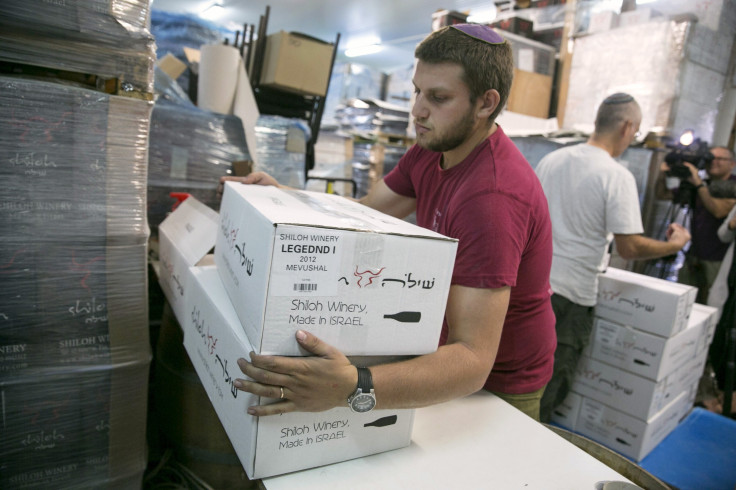EU Approves Guidelines For Labeling Products From Israeli Settlements

UPDATE: 6:40 a.m. EST -- The Israeli government Wednesday condemned the European Union's "exceptional and discriminatory step" to label goods produced in Jewish settlements in the West Bank and Golan Heights, and accused it of "applying a double standard."
"Product labeling does not advance any political process between Israel and the Palestinians," the Israeli foreign ministry said, in a statement. "Product labeling will strengthen the radical elements advocating a boycott against Israel and denying Israel’s right to exist, contradicting positions that the EU publicly opposes. This recent step raises questions regarding the role that the EU aspires to play."
Original story:
The European Union Wednesday approved guidelines that would require member states to label goods produced in Israeli settlements in the West Bank and Golan Heights, despite stiff opposition from the Israeli government. The proposal, which had been under consideration since 2012, aims to “ensure effective implementation of existing EU legislation,” an unnamed EU official reportedly said.
The European Commission “adopted this morning the Interpretative Notice on indication of origin of goods from the territories occupied by Israel since June 1967,” Agence France-Presse quoted an EU official as saying.
The territories, which Palestine claims should be part of its proposed state, have been occupied by Israel since the Six-Day War, in direct contravention of the United Nations Resolution 242 that calls for the withdrawal of the Israeli military from the region. Israel, however, has refused to do so, and, in the past, termed attempts to label settlement products as “disguised anti-Semitism.”
“The labeling guidelines initiative is being promoted by anti-Israel organizations, and not by European consumers-protection organizations,” the Israeli foreign ministry said, in a statement released Tuesday. “These measures are discriminatory in nature. It is intolerable that Israel is the only country that has been singled out by the EU for such a policy, despite the fact that there are over 200 disputed territories worldwide.”
The EU, meanwhile, has consistently downplayed the impact of the labeling policy, reportedly terming it a “technical measure” that is “an indication of origin, not a warning label.” According to the Associated Press, the labeling would affect less than 1 percent of all trade between the EU and Israel, which currently stands at approximately $32 billion.
Despite widespread global condemnation, the Israeli government has continued to expand Jewish settlements in the West Bank. Currently, over 500,000 settlers are believed to be living in at least 125 government-sanctioned settlements in the region -- up from just over 100,000 in 1993, when the Oslo peace accords were signed.
© Copyright IBTimes 2025. All rights reserved.






















